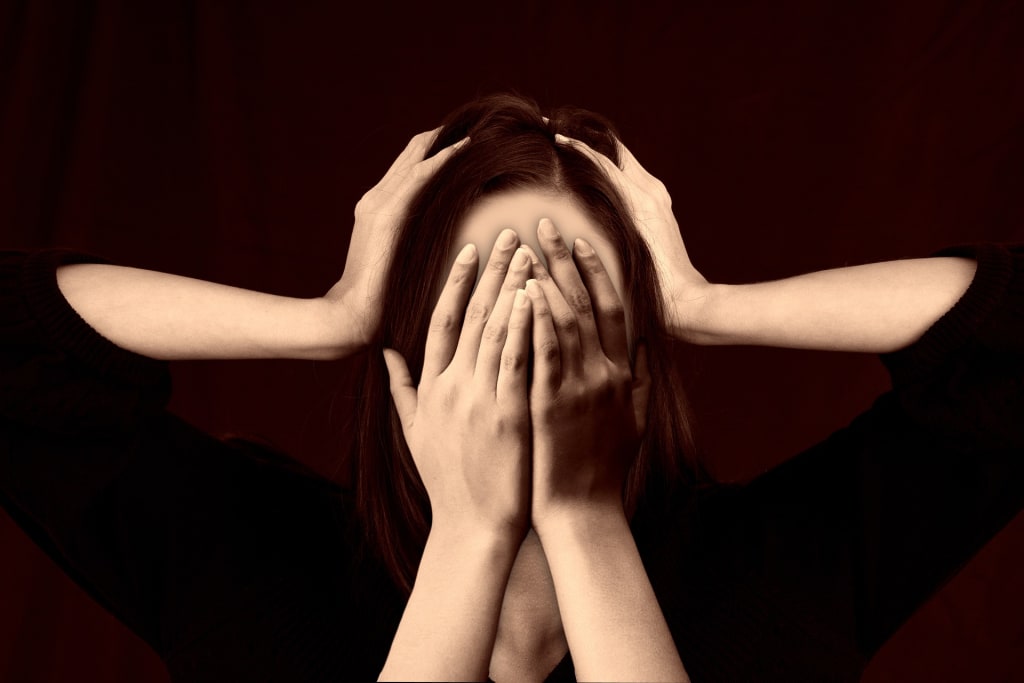Why Are Mental Health Disorders Rising?
What you should know about mental health

Feeling anxious, depressed, and powerless? Well! You are not alone. A growing number of people all over the world have been dealing with mental health problems in fact since 1990. Mental disorders have increased globally by 48% besides the direct health and social impact it has on individuals. This increase in mental health disorders is costing the global economy almost one trillion dollars each year. This means that mental health can no longer be treated as an individual problem, but rather as a widespread public health issue.
So the question is why has there been a rise in mental health issues in the last few decades, but before we answer that we need to first understand what causes mental disorders. Mental health is incredibly complex and there are many variations in combinations of factors that can lead to mental disorders. These ranges from biological factors to external social and environmental factors, biological factors include genetics, chemical imbalances and physical injuries. For example, studies have shown that disorders like bipolar depression and schizophrenia have genetic roots that can get passed down in the family more external are direct psychological factors tied to individuals' personal experiences cognitive and affective traits like coping skills, self-esteem, and memory erratum. Poor self-esteem for example, was shown to play a critical role in the development of mental disorders such as depression, anxiety, and substance abuse.

Even further out are social and environmental factors discrimination, poverty, pollution, displacement, food insecurity, etc. can all have detrimental mental health impacts on a large scale. For example, a study showed that if people are exposed to prolonged armed conflicts where they experience constant stress and trauma, they are more vulnerable to developing a mental disorder. Some of these external factors can also interact with certain internal factors and put people at higher risk of developing a mental disorder for instance, internal factors like sex, gender, or race can interact with social factors like discrimination and poverty to increase the risk of developing mental problems.
Now that we know what causes mental health problems which of these factors is behind the recent increase in mental disorders in the last 30 years since biological factors like genetics or physical injury have remained relatively constant? They can be ruled out, but as we move towards the more external, social, and environmental factors, we see that there has been a lot of change in the past few decades and researchers believe that these external social changes have played a significant role in the increase in mental health disorders. Today let's explore four of these social and environmental changes and see how they have influenced widespread mental health problems over the years the gap between the average incomes of the top 10 percent and the bottom 50 percent of individuals within countries has almost doubled this unequal distribution of income. This means that despite overall economic growth many people still face financial problems. Research shows that this economic distress can adversely impact people's mental health, as it may promote fear worry hopelessness, and a sense of powerlessness to exert control over their situation. A study conducted with low-income families in the USA showed that persistent poverty-related stress was directly related to symptoms of anxiety and depression.

The 2021 IPCC report warns us that global warming and extreme weather events like heat waves and floods will become more frequent and intense direct contact with this extreme weather. Events can severely disrupt people's lives and lead to trauma loss of resources and social support research reveals that this can increase the risk of developing mental disorders such as PTSD and depression. General anxiety increased substance use and suicidal thoughts. For instance, a 2019 study analyzed the mental health of flood victims globally; twenty percent of the victims had been diagnosed with depression 28 percent with anxiety, and 36 percent with PTSD, besides being affected directly by extreme weather events climate change can also affect people mental health indirectly.
A 2021 study reported that many people were experiencing negative thoughts about climate change 45 of the respondents felt their feelings about climate change negatively impacted their daily life 75 percent of respondents said that they think the future is frightening and 83 percent said that they think people have failed to take care of the planet. Humans have evolved as social creatures strongly dependent on familial and social bonds, however, today many people live alone far away from their communities a major reason for this has been better job opportunities, quality education, and advanced health care offered in cities due to these incentives the urban population increased from 39 in 1980 to 55 percent today and is expected to increase to 68 percent by 2050. However, cities are expensive and have limited space, which often results in many people moving to cities, alone leaving their families and social support networks behind researchers found that people living in isolation in urban areas are more likely to suffer from certain mental disorders such as anxiety, depression, alienation, and family disintegration.

Today, almost one in three people around the globe use social media platforms. This technology has a direct link to people's lives and their social connections and interactions, but how does it affect mental health? Many researchers have highlighted that social media is heavily linked to negative well-being and poor self-esteem, especially among young people. A 2017 study found that people who use seven or more social media platforms were three times more likely to have high levels of anxiety symptoms than those who use zero to two platforms. Some researchers also say that spending more time on social media can make people experience social isolation. Moreover, according to the Center for Research, almost 25 percent of adolescents believe that social media has a mostly negative effect on their mental health with 13 of 12 to 17-year-olds reporting depression and 32 percent reporting anxiety. While a lot of this research is still new and ongoing it is clear that the rise of social media is increasing the risk of mental health disorders as we have seen these large-scale social and environmental changes are creating mental health challenges. So it's very plausible that the recent increase in global mental health problems is correlated to these large-scale social and environmental changes.
If that is the case solution to this public health crisis in addition to conventional treatment and prevention measures need to address these social and environmental challenges as well and since these factors will continue to intensify in the future. There is an urgent need for more research policy and awareness about this increasing mental health crisis and its impact on people and communities around the world.

About the Creator
Farhat Naseem
Hi, I am Farhat Naseem. A book reader, knowledge seeker and story lover. I try to decorate ideas and feelings with words. Health, motivation, and general knowledge are the topics I prefer to read and write.
Enjoyed the story? Support the Creator.
Subscribe for free to receive all their stories in your feed. You could also pledge your support or give them a one-off tip, letting them know you appreciate their work.






Comments (4)
Great
Well-written and insightful piece!
This is great! Thank you so much for sharing this.
This is my first article. If you found it helpful, don't forget to like and share. Your small deed means a lot to me.